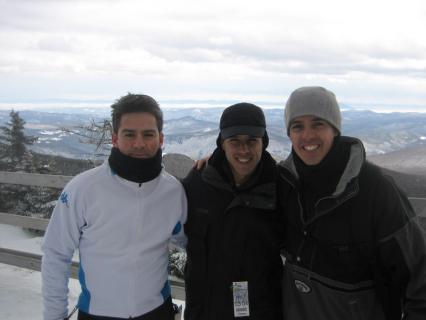Andres Mejia McKinsey is a client services lead with McKinsey. He is a
performance-driven strategic advisor with more than sixteen years of
experience helping Fortune 500 clients transform their businesses.
When he isn’t working, one of his interests is Formula 1 racing. Formula 1 is unique among automobile racing, in that each racing team has to build up its own cars. Certain parts can be acquired directly from a manufacturer, like the vehicle’s engine, but most of the vehicle has to be designed and built entirely by the team.
For most enthusiasts, the appeal of Formula 1 racing is that it features the world’s greatest drivers with the world’s most technologically advanced racing vehicles. The Formula 1 races follow a worldwide racing circuit over a nine month season. It’s a far cry from NASCAR racing, in that in Formula 1 there is a constant pursuit of a flawless race. Unlike many other auto races, Formula 1 cars don’t refuel during the course of a race, which makes fuel management a key part of the racing strategy.
They may not refuel, but there are pitstops, and like most pitstops teamwork is essential. Mechanics and other team members work together to address any issues and get the car back on the race course as quickly as possible. The world record for the fastest Formula 1 pitstop ever is an astonishing 2.31 seconds, achieved on July 7, 2012.
Andres Mejia with McKinsey was born in Bogota, Colombia. He is a graduate of the Universidad de los Andes in Bogota, where he received a Bachelor’s degree in Industrial Engineering.
Sources:
http://auto.howstuffworks.com/auto-racing/motorsports/formula-one.htm
http://www.headingfortheexits.com/the-beginners-guide-to-formula-1-racing/
When he isn’t working, one of his interests is Formula 1 racing. Formula 1 is unique among automobile racing, in that each racing team has to build up its own cars. Certain parts can be acquired directly from a manufacturer, like the vehicle’s engine, but most of the vehicle has to be designed and built entirely by the team.
For most enthusiasts, the appeal of Formula 1 racing is that it features the world’s greatest drivers with the world’s most technologically advanced racing vehicles. The Formula 1 races follow a worldwide racing circuit over a nine month season. It’s a far cry from NASCAR racing, in that in Formula 1 there is a constant pursuit of a flawless race. Unlike many other auto races, Formula 1 cars don’t refuel during the course of a race, which makes fuel management a key part of the racing strategy.
They may not refuel, but there are pitstops, and like most pitstops teamwork is essential. Mechanics and other team members work together to address any issues and get the car back on the race course as quickly as possible. The world record for the fastest Formula 1 pitstop ever is an astonishing 2.31 seconds, achieved on July 7, 2012.
Andres Mejia with McKinsey was born in Bogota, Colombia. He is a graduate of the Universidad de los Andes in Bogota, where he received a Bachelor’s degree in Industrial Engineering.
Sources:
http://auto.howstuffworks.com/auto-racing/motorsports/formula-one.htm
http://www.headingfortheexits.com/the-beginners-guide-to-formula-1-racing/






